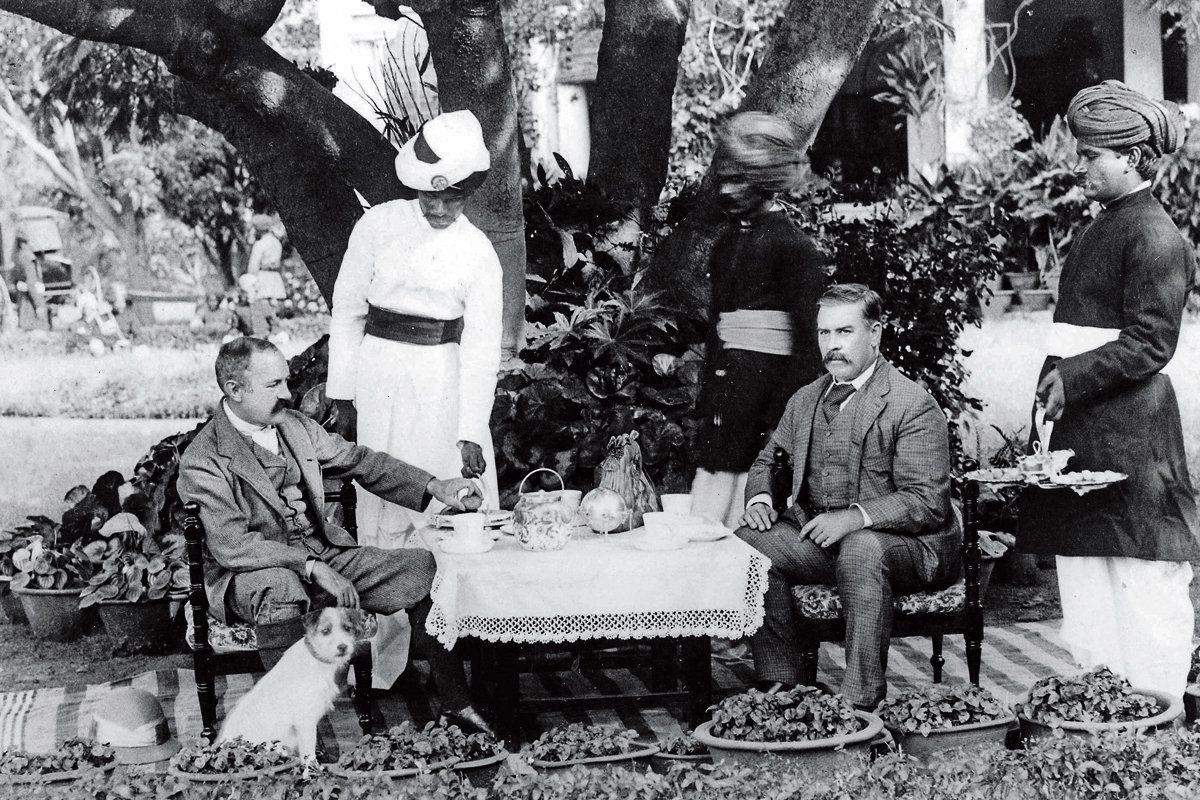
The British, so the cliché goes, are a repressed lot. Faced with an awkward subject, they avoid it, change the subject, make tea. Nowhere is this more so than with the topic of the British Empire. The subject of fascination, hatred, and admiration throughout the world, the history of the empire is largely avoided in Britain itself: a bloody, embarrassing episode everyone would rather forget. And a new BBC prime-time documentary TV series, Empire, is raising eyebrows in Britain by accusing the country of being in just this kind of denial: "Pretending we don't need to think about it is just stupid," say the program's creators.
The history of the empire is conspicuously absent from the British school curriculum. Growing up in late 20th-century Britain, my generation studied the history of the British Isles up to the 18th century, then leapt over the empire to focus on everything from the Russian Revolution to the history of African-Americans in America to World War II. Faced with a multiethnic classroom full of immigrants from Asia, the Middle East, and Africa, my teachers were no doubt relieved to focus on the evils of Hitler and the greatness of Martin Luther King than on the divisive issue of how the ancestors of one part of our classroom ruled over and occasionally slaughtered the ancestors of the other part. It would have led to fights in the playground at the very least. So much easier to sweep all the Indian mutinies, Boer War concentration camps, and Caribbean slave colonies under the carpet.
Empire determinedly sets out to confront Britain's colonial past in a spirit of sprightly self-flagellation: "It was the empire on which the blood never dried," says the presenter. What follows are travels across Britain's former dominions on what could literally be described as a massive guilt trip. The host asks an Egyptian: "Is there absolutely nothing good we did here?"
"Nothing," says the Egyptian, who with delicious irony wears a very British tweed suit. "All imperialism is bad."
But the program's ultimate goal is not merely a cataloging of the empire's sins but to show how the idea of Britain is impossible without an understanding of the history of empire: "The country we live in—the United Kingdom—is an imperial creation. It's to the empire that we owe our sense of ourselves as somehow special. It has even changed the genetic makeup of the British people. Yet we insist on pretending it is behind us," says the host.
While the BBC's series tries to come to terms with the empire's past, a new reality show on a rival network, Channel 4, is dealing with the even more difficult problem of how the offspring of Britain's colonial adventures now have to find a way to live together. The program, Make Bradford British, focuses on what is arguably Britain's most fractured town, a place famous for its ethnic riots. The program puts an orthodox Muslim, a racist white policeman, an Asian-bashing black woman, and other assorted multicultural products of the British Empire's aftermath together in one house. Their religious and ethnic conflicts quickly rise to the surface, before they start to soften, cry, and search for their common Britishness. They claim to feel British, but most stutter and stare confused into the camera when asked to define it.

Both programs are tapping into a potentially fatal national identity crisis. This year is meant to be a particularly patriotic year for Britain: the country is celebrating the queen's Diamond Jubilee, and the Olympics are coming to London. But below the bunting, Britain has had—after decades of avoiding the question—to start facing up to the problem that it has little common idea of who on earth it actually is. If the BBC's Empire takes the aggressive approach to therapy, demanding that the patient owns up to his blind spots, Make Bradford British goes for a more touchy-feely, group-therapy approach. But what's perhaps most telling, and most British, about these attempts to come to terms with the country's past and present is that this process is playing out chiefly on television rather than through state, educational, or religious institutions. Television plays a curiously vital role in Britain. In a deeply private and, yes, somewhat repressed culture, TV is the way Britons bond and deal with things. Some cultures stay up all night talking and drinking to deal with their problems, others turn to the church—the British switch on the TV. On the airwaves at least, Britannia still rules.
Uncommon Knowledge
Newsweek is committed to challenging conventional wisdom and finding connections in the search for common ground.
Newsweek is committed to challenging conventional wisdom and finding connections in the search for common ground.





